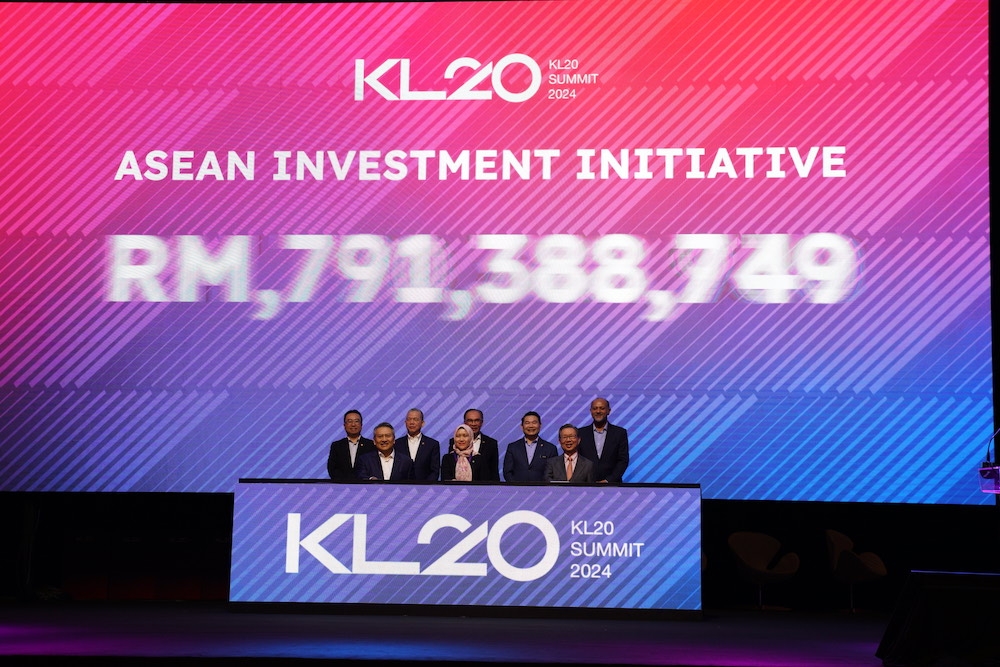APRIL 24 — In the dynamic global trade landscape, the relationship between China and the Association of Southeast Asian Nations (Asean) continues to strengthen, pivoting around innovative growth verticals. For Malaysia, business ties and trade underpin key opportunities for collaboration. For over a decade and a half, China has remained Malaysia's largest trading partner, a testament to the enduring partnerships and economic resilience between the two nations from 2008 to 2023.
Malaysian Prime Minister Datuk Seri Anwar Ibrahim has already made two official trips to China after assuming office in November 2022, forging several memoranda of understanding worth RM200 billion. These covered commodities and agriculture-based industries, automobile manufacturing, as well as cooperation in the field of technical and vocational education and training. Other areas included collaboration in science and technology and vaccine development technology, warehousing and logistics, and waste-to-energy power plants, amongst others.
This period has seen a robust enhancement in Private Equity (PE) activities within Asean. And with China’s keen focus on sectors such as healthcare, telecommunications, business services, the green economy and agriculture, Malaysia, with its combination of policy support and strategic sectoral investments, stands out as particularly attractive for these ventures.

At the recently concluded KL20 Summit 2024, Dr Qi Bin, the Deputy Chief Investment Officer of the China Investment Corporation (CIC), underscored significant insights focused on economic synergies. He highlighted the multifaceted strengths of Malaysia's labour market, including a noticeable recovery in exports and considerable improvements in connectivity. These elements synergise well with the escalating private equity engagements in the country, setting a vigorous pace for investment and corporate activities.
China's pivotal role in Malaysia’s structural transformation is evident. The rapid inflow of Chinese investments and the establishment of Chinese corporate offices in Malaysia reflect a deeper, mutually beneficial engagement. These efforts are part of a broader strategy by CIC to foster a “win-win” scenario between China and Malaysia and across the global arena. Looking ahead, CIC is committed to reinforcing this platform, which has been diligently built over the years.
Right now, China remains Malaysia’s largest trading partner since 2009, making up 17.1% of Malaysia’s total external trade in 2023, an increase from 13% in 2010 and 4.7% in 2001. The balance of trade is not one-sided, as Malaysia makes a mark as the second biggest Asean country trading with China since 2022, with exports valued at RM102.3 billion — 58.6% of total exports — from January to November 2023. Goods exported consisted largely of electronics and electrical products, palm oil, oil and gas, and plastic products.
The goal is clear for the future: to catalyse sustainable economic growth and development that benefits all stakeholders involved. This strategic focus by CIC is set to drive future initiatives, ensuring that the growth trajectory of China-Asean economic relations continues to ascend, promising prosperity and stability for the region.
*This is the personal opinion of the writer or publication and does not necessarily represent the views of Malay Mail.





















